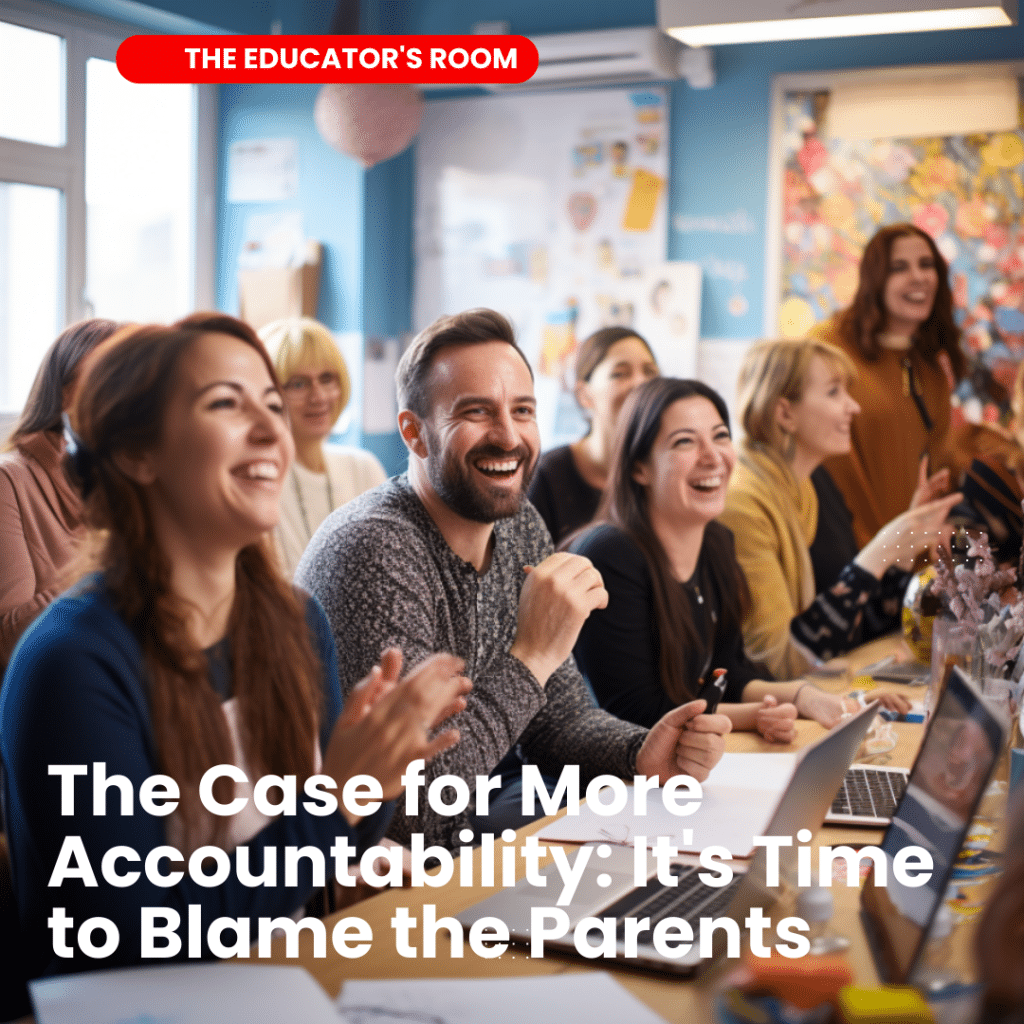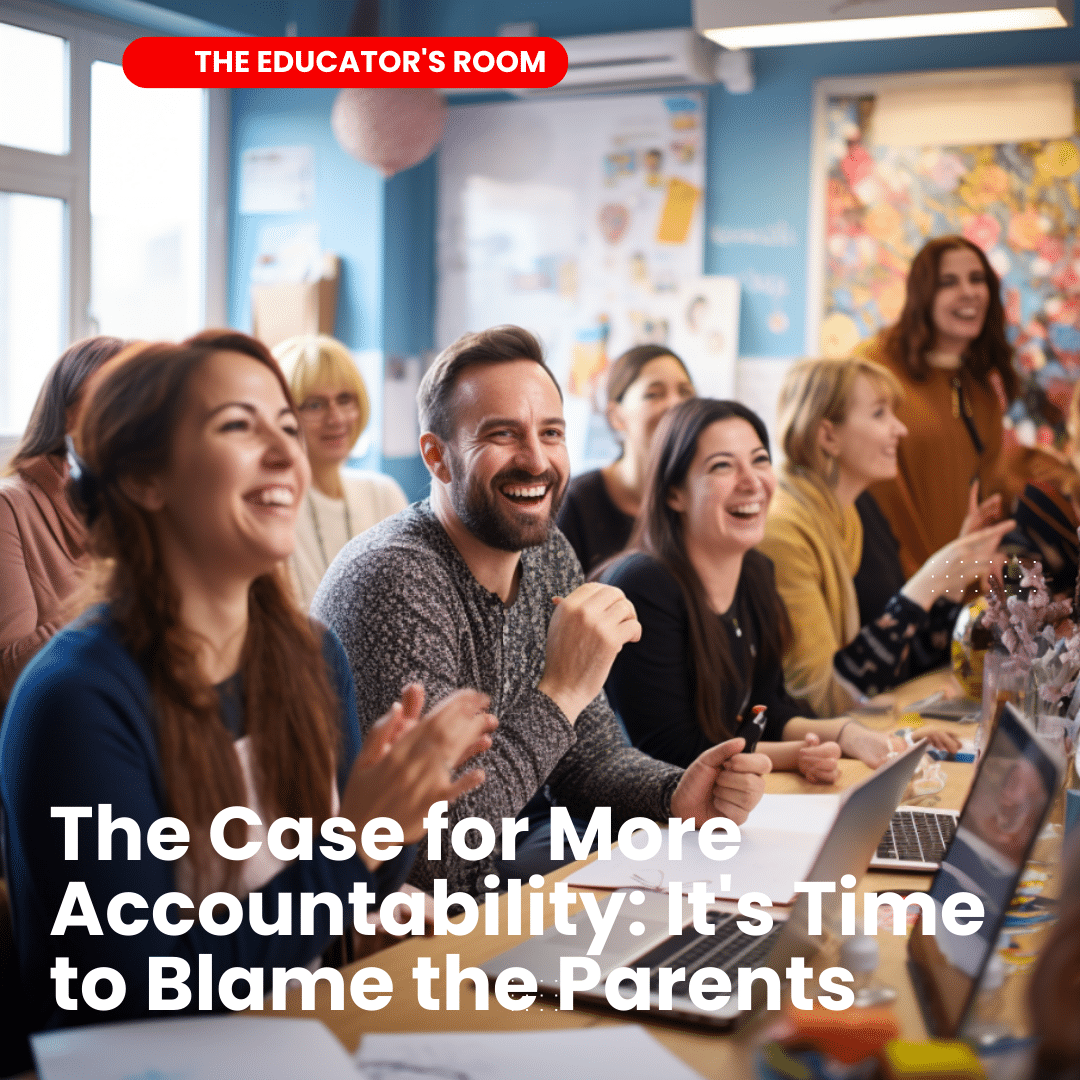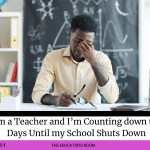As you read this headline, I know you cringed- so did I as I wrote it. But as I grapple with retiring after 25 years in the classroom due to student (and parent) misbehavior, it’s something that I feel uniquely qualified to say. There will be some people who will not hear what I’m saying, and that’s fine. But right now, we’re in crisis mode in education, and the parents can only help fix the behavior issues. According to the National Center for Education Statistics (NCES) 87% of public schools reported that the COVID-19 pandemic has negatively impacted student socio-emotional development during the 2021–22 school year.
The data continues to get worse. Due to the COVID-19 pandemic, there has been an increase in
- incidents of classroom disruptions from student misconduct (56 percent)
- rowdiness outside of the classroom (49 percent)
- acts of disrespect towards teachers and staff (48 percent)
- And prohibited using electronic devices (42 percent).
Our schools and communities have long since asked that teachers be accountable for teaching students at a high level. We’ve been scapegoated for lagging test scores, blamed for indoctrinating students, and targeted for wanted protections in the classroom.
But it’s high time we ask for the same accountability for parents.
Teachers want parents held accountable for their students coming to school prepared to learn, prepared to be a productive part of the school environment, and the parents to be a willing participants in their child’s education.
I Started Teaching in the 1990s
I started teaching in the 1990s– a time recovering from the height of the crack epidemic- when educational researchers were trying to figure out how to “do school” with the new millennium upon us. There was a lot of talk about evidence-based practices, authentic assessments, and how we could engage students to learn. For the most part, students attended school to school to LEARN. Did they mess up? Absolutely? However, redirection was simple, and kids understood that some behavior was unacceptable in school.
Parents were expected to support their schools- like their parents did in the 1970s and 1980s. Sometimes this looked like them helping with homecoming or other times coming to the school to correct their child’s behavior, but there was an expectation. The community (pastors, grandparents, community centers, etc.) was expected to fill in the gap. There were affordable after-school programs for students to walk to, and it was common for local pastors to mentor students and even substitute in the schools to stay connected in the community. These expectations helped us keep a somewhat “civil” atmosphere within our schools. Kids still got in trouble, but teachers felt supported.
Mid-Career Started Teacher Accountability
In the 2000s, I was well into my teaching career when there was a push for more standardized testing and more accountability for teachers. Almost instantly, hordes of non-profit organizations perforated within school districts told us how to teach and what to teach. The atmosphere around teaching almost instantly changed. As a teacher, I felt like I needed to work harder, and with every meeting, I was told that kids weren’t performing because I was doing something wrong.
Teaching no longer felt “easy,” but there was a constant demand to teach more, give more tests, and make kids do more. To try and be a better teacher, I enrolled in graduate school. I spent the next ten years taking part in professional learning, just for my kids to still academically be “behind”- according to standardized testing. Sometimes I would see a semblance of hope as students who once struggled to write went on to graduate and start their post-high school lives.
I still kept going, but year after year, a little bit of the “teacher” in me died as I was required to teach the mandated curriculum, excuse bad behavior, and become just a pusher of worksheets to not upset parents.
The COVID Years
Pre-COVID, I worked at a pace that had me in my early 40s with high blood pressure and anxiety. The COVID-19 pandemic came and hit education hard.
The subsequent school shutdowns, deaths, face masks, and pandemic teaching exasperated every concern that I had before 2020.
When kids entered back through the school doors, their behaviors seemed to have amplified to the detriment of learning in the building, and teachers were afraid to teach.
- Kids came back to school angrier than when they left. We attributed some of this to trauma, but it was a lot to unpack.
- Fights- or all-out brawls- seemed to be the norm, and social media-fueled the disputes’ viciousness.
- Parents stormed school board meetings, ripping off masks and demanding freedom while over virtual learning.
- Kids who had behavior concerns before came back with even worse behaviors.
- We had subsets of kids who never even reported to virtual learning despite us supplying computers and Wi-Fi for our families.
- Kids came back even more deficient in core subject areas after schools spent hours teaching virtually for no kids to turn on their cameras.
- Not satisfied with the turmoil of COVID-19 learning, we now have parents fueling book banning and the white-washing of history for their own political leaning.
It’s been so unbearable at my school that last year 45 teachers resigned (some mid-year). For every colleague I’ve spoken to, they cited the lack of parent accountability for grades, behavior, and support as their number one issue. Frustrated at the beginning of the year, I spoke up at our first faculty meeting while reviewing data on discipline and grades.
Holding Parents Accountable
I stood up and asked, “When are we going to hold parents responsible for how their kids behave in school? As teachers, we can’t hold the responsibility to raise and teach these students.”
I was quickly hushed, but as I sat back and fumed, the school fumbled over excuses on why we had to have five different protocols before a child could earn an “F” or before we wrote them up. But as I think about my last year in the classroom, there must be a change if we want to steer the ship back to actual learning, and I’d start with the parents.
The change starts with schools setting hard boundaries for parents to make them support the schools their children attend. These boundaries should push parents to support their children and schools so that the schools can educate them. While I don’t have an exhaustive list, I think we need to start by mandating volunteer hours for parents in our schools and requiring parents to plan how to support their children academically.
I started with these two accountability measures, but there’s more that we can do to push for equal accountability from parents as the public pushes for teachers. Of course, there will be people who will make all the excuses that we’re all used to.
We need parents at 200%
“What about working parents? Or “Not all parents can do this!” However, these are excuses. Teachers (we’re also parents) are expected to do all of this (and more). There will also be people who believe adding more accountability to parents can harm the relationship between school and parents, but I’d reason that we’ve asked teachers and schools to give 200%- it’s time we ask the parents to give the same.






Excellent commentary!! Blaming Covid on everything is getting ridiculous. Parents need to take responsibility for their kids!!